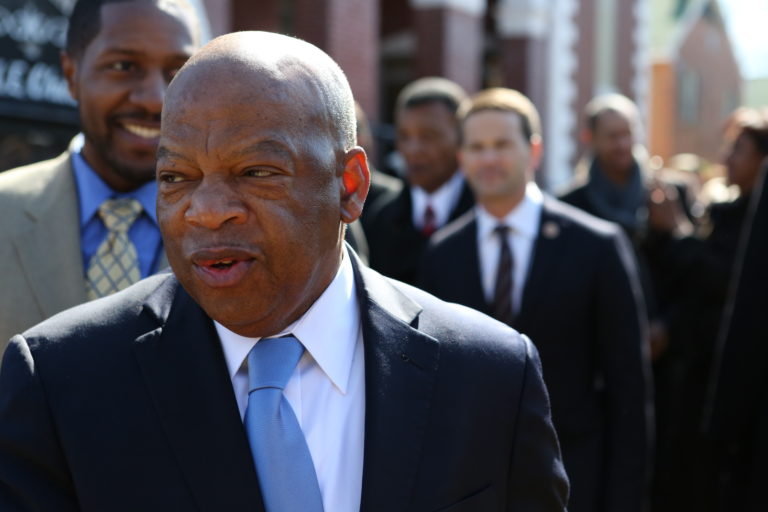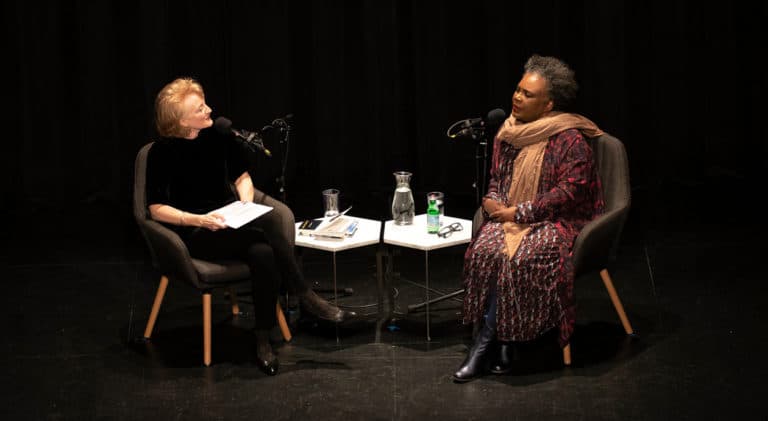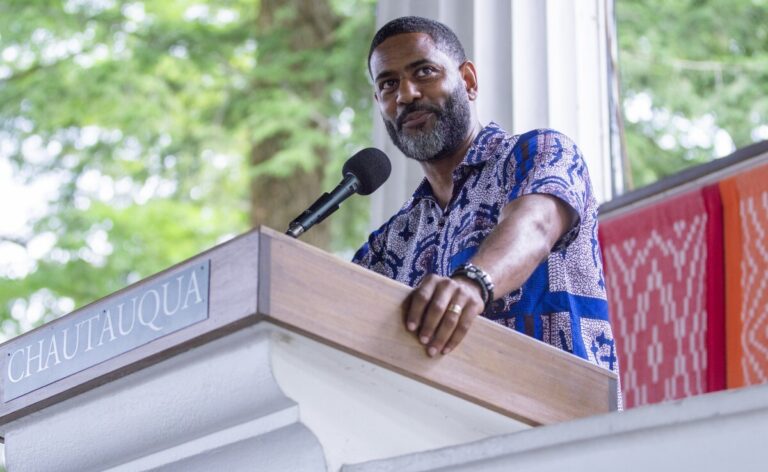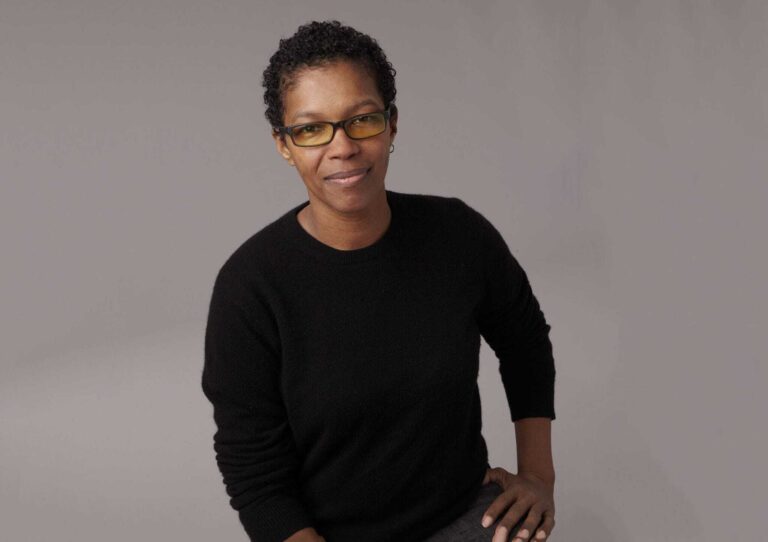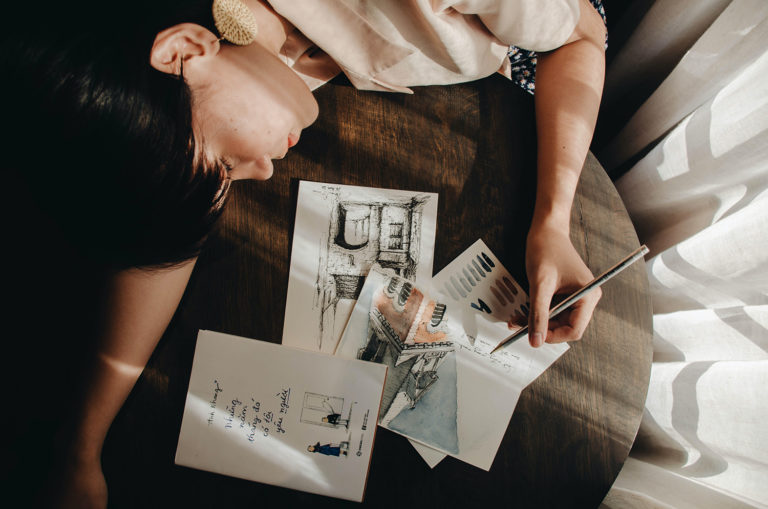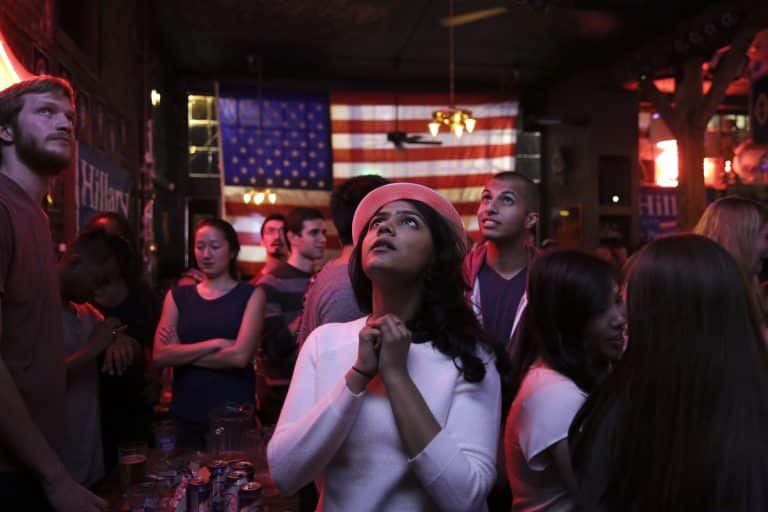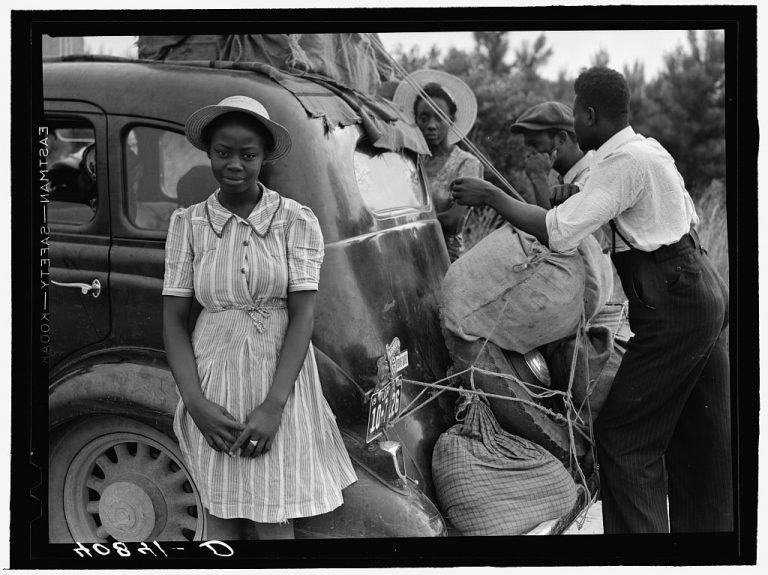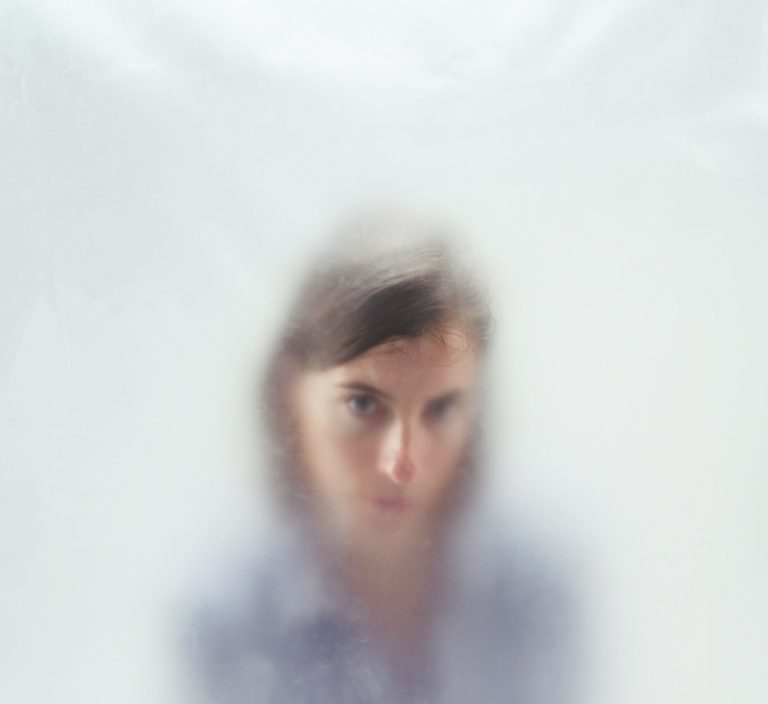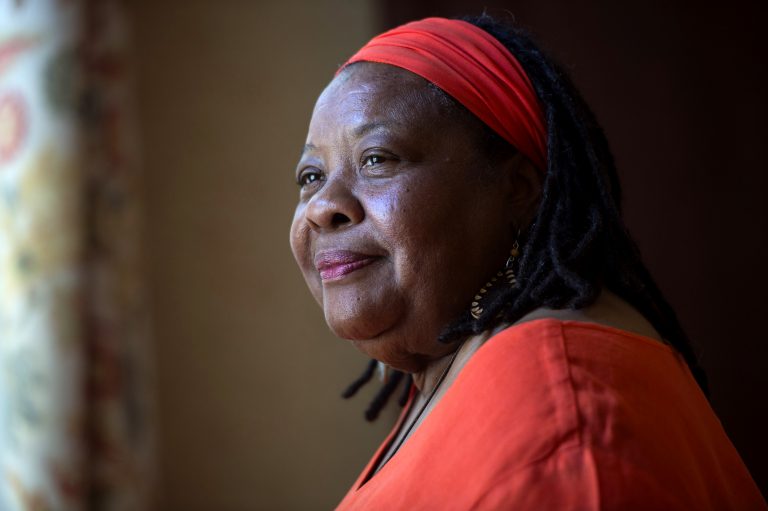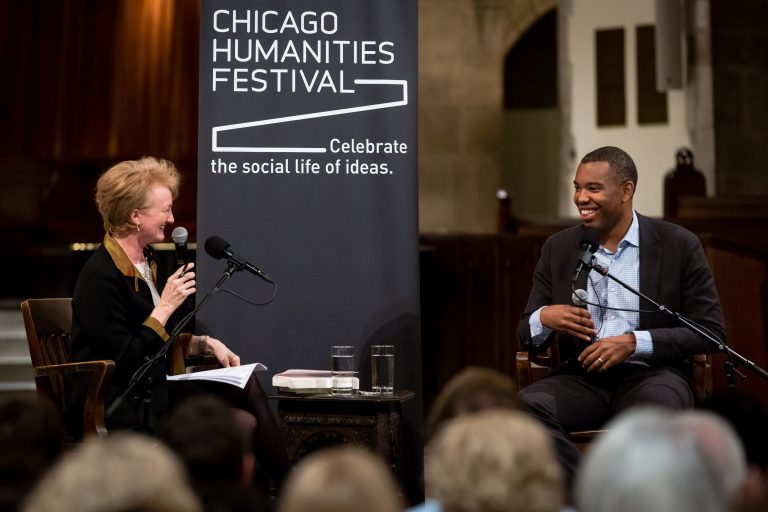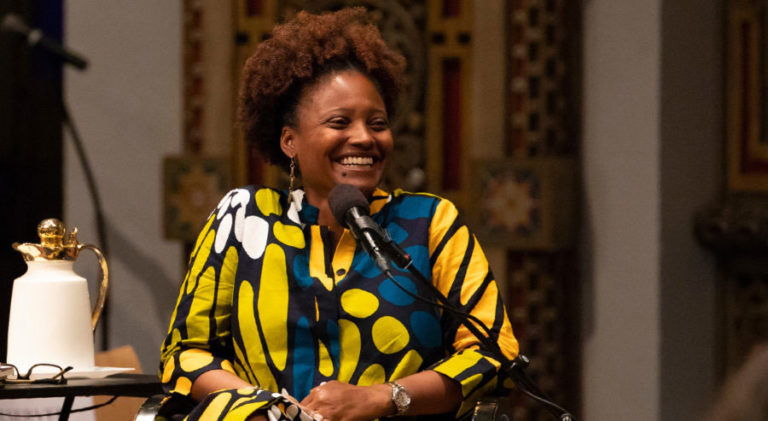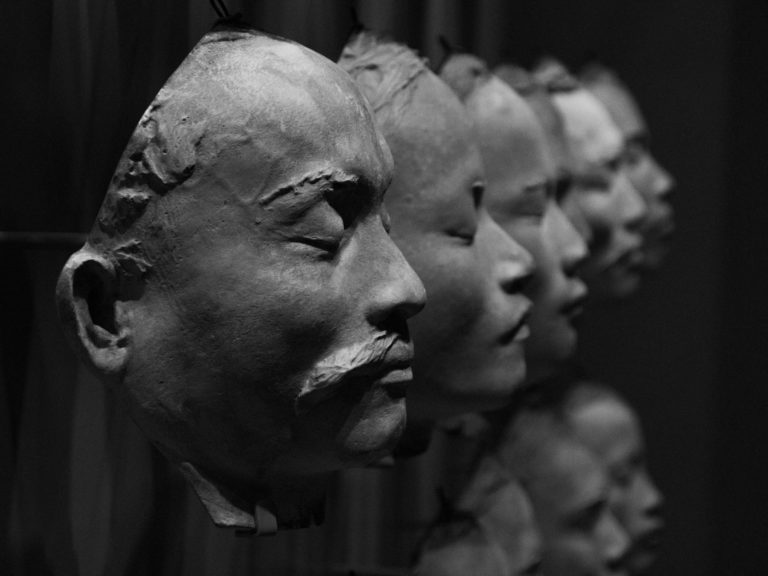An extraordinary conversation with the late congressman John Lewis, taped in Montgomery, Alabama, during a pilgrimage 50 years after the March on Washington. It offers a special look inside his wisdom, the civil rights leaders’ spiritual confrontation within themselves, and the intricate art of nonviolence as “love in action.”
Race & Healing
Featured Items
The poet, essayist, and playwright Claudia Rankine says every conversation about race doesn’t need to be about racism. But she says all of us — and especially white people — need to find a way to talk about it, even when it gets uncomfortable. Her bestselling book, Citizen: An American Lyric, catalogued the painful daily experiences of lived racism for people of color. Claudia models how it’s possible to bring that reality into the open — not to fight, but to draw closer. And she shows how we can do this with everyone, from our intimate friends to strangers on airplanes.
View
- List View
- Standard View
- Grid View
45 Results
Filters
October 15, 2020
Rev. Otis Moss III
The Sound of the Genuine: Traversing 2020 with ‘the Mystic of the Movement’ Howard Thurman
An hour to sit with, and be filled. Two voices — one from the last century, one from ours — who inspire inward contemplation as an essential part of meeting the challenges in the world. Howard Thurman’s book Jesus and the Disinherited, it was said, was carried by Martin Luther King Jr. alongside the Bible and the U.S. Constitution. Thurman is remembered as a philosopher and theologian, a moral anchor, a contemplative, a prophet, and pastor to the civil rights leaders. Rev. Otis Moss III, himself the son of one of those leaders, is a bridge to Thurman’s resonance in the present day, and between the Black freedom movements then and now.
September 10, 2020
angel Kyodo williams
The World Is Our Field of Practice
This prophetic conversation, which Rev. angel Kyodo williams had with Krista in 2018, is an invitation to imagine and nourish the transformative potential of this moment — toward human wholeness. Rev. angel is an esteemed Zen priest and the second Black woman recognized as a teacher in the Japanese Zen lineage. She is one of our wisest voices on social evolution and the spiritual aspect of social healing.
Marilyn Nelson is a storytelling poet. She has taught poetry and contemplative practice to college students and West Point cadets. She brings a contemplative eye to ordinary goodness in the present and to complicated ancestries we’re all reckoning with now. And she imparts a spacious perspective on what “communal pondering” might mean.
An extraordinary conversation with the late congressman John Lewis, taped in Montgomery, Alabama, during a pilgrimage 50 years after the March on Washington. It offers a special look inside his wisdom, the civil rights leaders’ spiritual confrontation within themselves, and the intricate art of nonviolence as “love in action.”
Vincent Harding was wise about how the vision of the civil rights movement might speak to 21st-century realities. He reminded us that the movement of the ’50s and ’60s was spiritually as well as politically vigorous; it aspired to a “beloved community,” not merely a tolerant integrated society. He pursued this through patient-yet-passionate cross-cultural, cross-generational relationships. And he posed and lived a question that is freshly in our midst: Is America possible?
Go to the doctor and they won’t begin to treat you without taking your history — and not just yours, but that of your parents and grandparents before you. Pulitzer Prize-winning journalist Isabel Wilkerson points this out as she reflects on her epic work of narrative nonfiction, The Warmth of Other Suns. She’s immersed herself in the stories of the Great Migration, the movement of six million African Americans to northern U.S. cities in the 20th century. The book is a carrier of histories and truths that help make sense of human and social challenges at the heart of our life together now.
You can’t think about something if you can’t talk about it, says Eula Biss. The writer helpfully opens up lived words and ideas like complacence, guilt, and opportunity hoarding for an urgent reckoning with whiteness. This conversation was inspired by her 2015 essay in The New York Times, “White Debt.”
Civil rights legend Ruby Sales learned to ask “Where does it hurt?” because it’s a question that drives to the heart of the matter — and a question we scarcely know how to ask in public life now. Sales says we must be as clear about what we love as about what we hate if we want to make change. And even as she unsettles some of what we think we know about the force of religion in civil rights history, she names a “spiritual crisis of white America” as a calling of today.
James Baldwin said, “American history is longer, larger, more various, more beautiful, and more terrible than anything anyone has ever said about it.” Imani Perry embodies that prism. For the past few years, Perry has been pondering the notions of slow work and resistant joy as she writes about what it means to raise her two black sons — as a thinker and writer at the intersection of law, race, culture, and literature. This live conversation was recorded at the Chautauqua Institution.
Ta-Nehisi Coates says we must love our country the way we love our friends — and not spare the hard truths. “Can you get to a place where citizens are encouraged to see themselves critically, where they’re encouraged to see their history critically?” he asks. Coates is a poetic journalist and a defining voice of our times. He’s with us in a conversation that is joyful, hard, kind, soaring, and down-to-earth all at once. He spoke with Krista as part of the 2017 Chicago Humanities Festival.
Darnell Moore says honest, uncomfortable conversations are a sign of love — and that self-reflection goes hand-in-hand with culture shift and social evolution. A writer and activist, he’s grown wise through his work on successful and less successful civic initiatives, including Mark Zuckerberg’s plan to remake the schools of Newark, New Jersey, and he is a key figure in the ongoing, under-publicized, creative story of The Movement for Black Lives. This conversation was recorded at the 2019 Skoll World Forum in Oxford, England.
We must shine a light on the past to live more abundantly now. Historian Annette Gordon-Reed and painter Titus Kaphar lead us in an exploration of that as a public adventure in this conversation at the Citizen University annual conference. Gordon-Reed is the historian who introduced the world to Sally Hemings and the children she had with President Thomas Jefferson, and so realigned a primary chapter of the American story with the deeper, more complicated truth. Kaphar collapses historical timelines on canvas and created iconic images after the protests in Ferguson. Both are reckoning with history in order to repair the present.
Community organizers Rami Nashashibi and Lucas Johnson have much to teach us about using love — the most reliable muscle of human transformation — as a practical public good. Nashashibi is the founder of the Inner-City Muslim Action Network, a force for social healing on Chicago’s South Side. Johnson is the newly-named executive director of The On Being Project’s Civil Conversations Project. In a world of division, they say despair is not an option — and that the work of social healing requires us to get “proximate to pain.”
April 4, 2019
Maya Angelou, Elizabeth Alexander, and Arnold Rampersad
W.E.B. Du Bois and the American Soul
A prolific writer on sociology, history, economics, and politics, W.E.B. Du Bois was one of the most extraordinary minds of American and global history. His life traced an incredible arc; he was born three years after the end of the Civil War and died on the eve of the March on Washington. In 1903, he penned the famous line that “the problem of the 20th century is the problem of the color line.” Du Bois was a formative voice for many of the people who gave us the civil rights movement and for all of us navigating the still-unfolding, unfinished business of racial justice now. We bring his life and ideas into relief through three conversations with people who were inspired by him.
The poet, essayist, and playwright Claudia Rankine says every conversation about race doesn’t need to be about racism. But she says all of us — and especially white people — need to find a way to talk about it, even when it gets uncomfortable. Her bestselling book, Citizen: An American Lyric, catalogued the painful daily experiences of lived racism for people of color. Claudia models how it’s possible to bring that reality into the open — not to fight, but to draw closer. And she shows how we can do this with everyone, from our intimate friends to strangers on airplanes.
Tracy K. Smith has a deep interest in “the kind of silence that yields clarity” and “the way our voices sound when we dip below the decibel level of politics.” She’s a welcome voice on the little leaps of the imagination that can restore us. She’s spent the past year traversing our country, listening for all of this and drawing it forth as the U.S. Poet Laureate. Krista spoke with her at the invitation of New York’s B’nai Jeshurun synagogue, which has been in communal exploration on creating a just and redeemed social fabric.
August 23, 2018
Mahzarin Banaji
The Mind Is a Difference-Seeking Machine
The emerging science of implicit bias is one of the most promising fields for animating the human change that makes social change possible. The social psychologist Mahzarin Banaji is one of its primary architects. She understands the mind as a “difference-seeking machine” that helps us order and navigate the overwhelming complexity of reality. But this gift also creates blind spots and biases, as we fill in what we don’t know with the limits of what we do know. This is science that takes our grappling with difference out of the realm of guilt, and into the realm of transformative good.
The Pause
Join our constellation of listening and living.
The Pause is our seasonal Saturday morning ritual of a newsletter. Replenishment and invigoration in your inbox. Wisdom to take into your week. And when you sign up, you’ll receive ongoing, advance invitations and news on all things On Being.
Search results for “”
View
- List View
- Standard View
- Grid View
Filters
